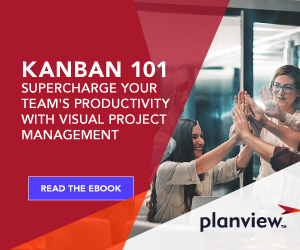
We have gathered insights from three top project management experts, with decades of experience between them, to shed light into what goes into project management success. Learn how to become an Elite Project Manager in our brand new eBook that is out now. Download Secrets of an Elite Project Manager
One of those interviewed was VP and Principal Analyst at Constellation Research, Alan Lepofsky. Following his great insight for the eBook, we asked him some more questions about how he has seen project management evolve over the course of his 20 years in the industry, and how people are working better together via software tools.
Q. What’s the biggest shift you’ve seen in project management in the past several years?
A. “The biggest shift from a few years ago, when people thought of rigidity in PM (it felt top down and restrictive), is that these social task management tools are providing a much more democratic feeling of being part of a project. Everybody feels much more involved. The project plan is open available and transparent. Tasks are there to be grabbed by people who want to work on them, not assigned. It’s a significant difference from what was done even a short time ago. Also, progress is now easily tracked and is highly visible…in real time as opposed to scheduled weekly status calls. This changes all contribute to making people feel like part of a team, not just a cog in a machine.
Q. How differently are you working today compared to when you started analysing the project management industry?
A. First, accountability is at a whole new level. Now you can see when someone has been assigned a task and it’s only at 50% completion. This enables people to see who is falling behind, enabling project managers to see who is excelling and who needs assistance. Second, we now have a much more collaborative environment. We are far more understanding of the way people work together, and are able to openly provide recognition and reward to keep people motivated. This transparent way of working gives people a much sense of camaraderie.
Q. Do you think workers are finding it easier to connect strategy with execution with the help of a tool?
A. Purpose is the key driver of the success of any project. If people understand why they are working on something, and how their contributions help, they will be more motivated to participate. Tools are critical in helping outline the purpose, as well as execute on the actions required to achieve the desired results. Companies are now longer interested in just cliche sayings like ”I want a social network at work”. Instead they focus on why they want it. What are the desired outcomes? shipping a product, launching a campaign, closing a legal case – With these goals in mind, working on a project is much more fulfilling. People aren’t just billable hours. The right tool for the job is important. Email is often incorrectly used for projects. It lacks the project management features required to coordinate and execute on tasks. Thankfully people are starting to understand and use social task management tools, leading to far better project outcomes.
eBook for download Secrets of an Elite Project Manager




